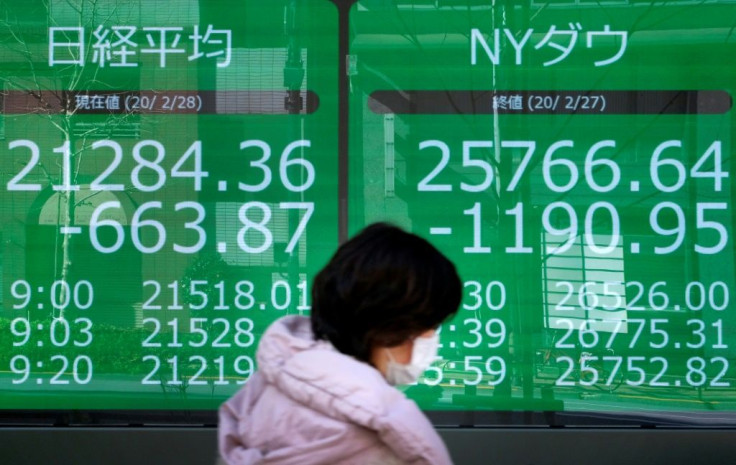Personal Finance Guru Says Time Is Still Right To Invest Despite Market Instability From Coronavirus

KEY POINTS
- Suze Orman said financially stable investors should set aside a fixed amount to invest at regular intervals into stocks, despite instability created by the spread of coronavirus
- Orman said this plan is meant for anyone looking to benefit years down the road, not someone trying to capitalize on an investment within a year
- Ameriprise adviser Kimberlee Orth echoed a similar plan and said sectors like technology, pharma, and consumer cyclicals are the ones worth looking at
Financial adviser Suze Orman has urged investors to be patient with the stock market, despite the instability caused by the coronavirus pandemic. She said that anyone financially stable could stand to make a sizable profit in the coming years when the market rebounds.
“Let’s just assume you have an eight-month emergency fund. Let’s assume you have no credit card debt,” Orman said Saturday during an appearance on CNN. “Let’s assume that you still have money coming in. You should be dollar-cost averaging every single month into the stock market.”
Her plan follows a dollar-cost averaging approach of investing to try and minimize risk but can take years to benefit from. Investors who take this approach would set aside a fixed amount to invest in stocks at regular intervals and spread out the risk.
She did caution that this plan is not for anyone looking to make back the money they’re investing within a year. Instead, if someone is willing to wait “three, five, or 10 years or longer,” then it may be worth testing the current waters.
“The higher the market goes, the shares cost more, the (fewer) shares their money buys, the less money they make, in the long run,” Orman told CNBC on Feb. 26.
Orman’s comment came around the same time the stock market began reacting to the rapid spread of coronavirus. One of the most notable drops was when the Dow Jones fell 1,000 points in a single session due to pandemic fears. However, Orman said anyone still investing or who didn’t sell off stocks could still benefit despite the drop.
“With this dip, if it continues to go down, they should just stay the course and actually be quite happy because the market is still incredibly high.”
Ameriprise private wealth adviser Kimberlee Orth has also pushed a dollar-cost averaging approach.
“If you were already in the stock market on Feb. 1 or March 1 or April 1, and you watched the market go down and those resources are allocated to a long-term goal and your risk tolerance is still suitable, there’s no need to change that because the market is eventually going to go back up,” Orth told MarketWatch.
She highlighted technology, consumer cyclicals, and pharma as sectors to consider, while airlines, cruises, hotels and restaurants are sectors to wait on.
“We’re going to get through this eventually. The market will go back up at some point, when the economy and the world start to recover. It’ll change, but it will get better,” Orth said.
© Copyright IBTimes 2025. All rights reserved.





















